This post is all about a 61 vs 76 key keyboard.
Are you struggling to choose between a 61-key or 76-key keyboard? Regardless of your skill level, deciding between the two could be overwhelming, but not if you are informed about the pros and cons of each. And, that’s what we’re going to be covering in this blog post.
Overall, for those who have a limited budget or space, or looking for a keyboard to travel with, a 61-key keyboard is a perfect option. 76 keys, on the other hand, gives you more keys to play most classical pieces, but it’s more expensive and may not be essential for someone who is just starting out.
However, both 61-key keyboards and 76-key keyboards have their own advantages and disadvantages. So, let’s now dive deeper into the comparison so that you can make a more informed decision!
61-Key Keyboard
The biggest advantage of a 61-key keyboard over a 76-key keyboard is its size. It’s typically 36-40 (90-101 cm) inches long. Because it’s smaller and more compact, a 61-key keyboard is a perfect choice for those who have limited space. Weighing between 10-15 pounds, it’s also very easy to carry and travel with, so a 61-key keyboard is also an ideal choice for musicians on the go.
Some beginners may also be hesitant to invest in a larger size keyboard when first starting. I believe that’s perfectly fine. A 61-key keyboard allows you to test out the waters first to see if you’re going to commit to playing the piano long-term. Later, if you decide to get serious about piano playing, you can easily upgrade to a larger size keyboard, ideally an 88-key keyboard.
Also, 61 keys are enough to play most pop and rock songs, and some easy classical songs.
However, I’m aware that some beginners have doubts about learning the piano on a 61-key keyboard, which leads us to the following question.
Are 61 Keys Enough to Learn Piano?
Definitely! I learned the piano on a basic 61-key keyboard during my first 2 years.
When first starting, you aren’t learning complex pieces anyway, so I doubt you will ever need all of the seven octaves on an 88-key piano. A 61-key keyboard certainly limits the songs you’re able to play, but I don’t think you’ll be limited by that much as a beginner. You’ll be mostly playing inside the 3 octaves.
The only negative scenario I can think of is when you want to play a duet with your piano teacher. Because my piano teacher had an 88-key digital piano and I would go to her place for the lessons, it was never a problem for me.
However, if you or your child is going to be taking lessons on a 61-key keyboard, I would suggest talking it up front with the instructor. But, in most cases, it shouldn’t be a huge deal breaker and I’m certain that a 61-key keyboard can accompany any beginner for at least 1.5 to 2 years.
76-Key Keyboard
A 76-key keyboard provides you with one more octave and is typically 45-50 inches (115-125cm) long. It weighs between 20-30 pounds, which is less ideal for travel compared to a 61-key keyboard. However, for those who don’t have enough space, it’s a great alternative to an 88-key keyboard.
Overall, a 76-key keyboard is the best of both worlds. It doesn’t take as much space as an 88-key keyboard while providing you with more keys to play more advanced pieces. In fact, you’ll be able to play most classical pieces on a 76-key keyboard without any restrictions.
A 76-key keyboard is more suitable for more experienced players who do not have enough space for an 88-key keyboard but need the additional octaves. It’s also ideal for beginners who have more budget but don’t have enough room to accommodate a full-sized piano.
If you’re looking for a 76-key keyboard, these are currently the best ones I recommend:
Weighted Keys
One thing to note is that if you’re looking for a keyboard with weighted keys, neither 61-key nor 76-key keyboards on the market offer fully weighted keys. They typically only offer semi-weighted keys, if at all. The Yamaha P-121 is the only exception I know that features fully weighted keys in the 73-76 key range.
If you’re considering getting a 61-key keyboard, I recently rounded up the best 61-key keyboards with weighted keys, which I highly suggest checking out.
Should Beginners Get a 61-Key or 76-Key Keyboard?
Whether you should get a 61-key or a 76-key keyboard will depend on various factors such as your budget, needs, and preferences. One thing you should stop worrying though is no matter which size of keyboard you prefer, you will have no issues learning the piano.
Overall, if you don’t have enough budget or space, a 61-key keyboard is a perfect choice. A beginner 61-key keyboard will cost much less, and will still have enough keys to learn the basics of piano playing.
On the other hand, a 76-key keyboard will get you closer to a real piano-playing experience, but you still won’t be using the additional octaves it provides in the early phases of your learning journey. However, if you get a 76-key keyboard as a beginner, you probably won’t feel the need to upgrade to an 88-key keyboard until you reach an advanced level, saving you more money in the long run.
Wrapping Up
I hope this post has helped you decide between 61 keys versus 76 keys. The decision essentially comes down to your personal preference and needs.
While it’s important to consider various factors, don’t get caught up in overthinking, especially if you’re on your journey of buying your first piano. Remember that with the right amount of practice and dedication, either keyboard can help you achieve your piano-playing goals.
If you have any questions, please let me know in the comments!

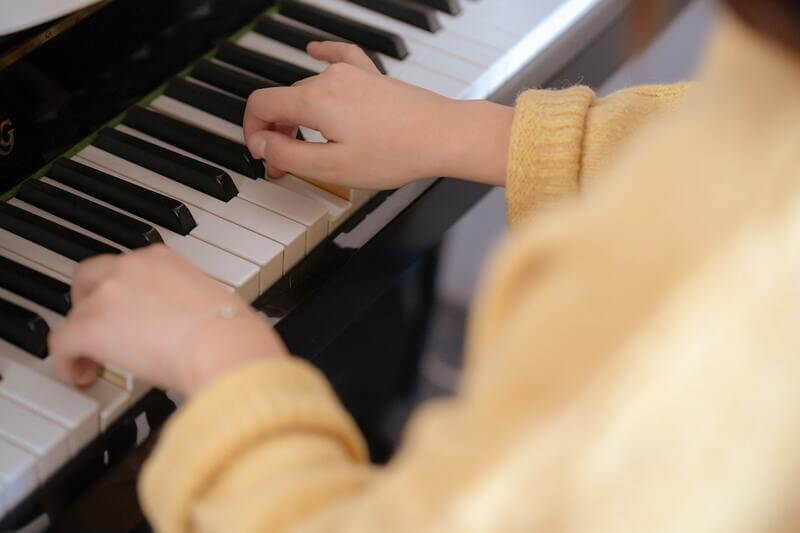
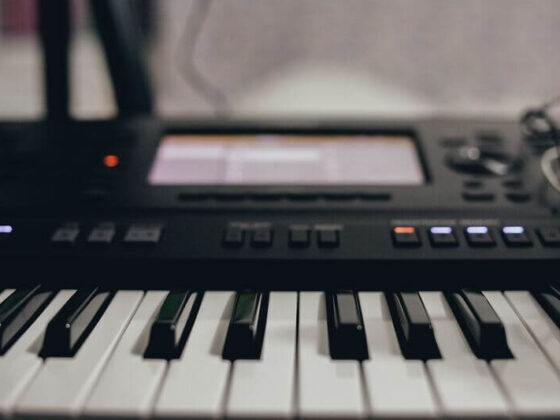
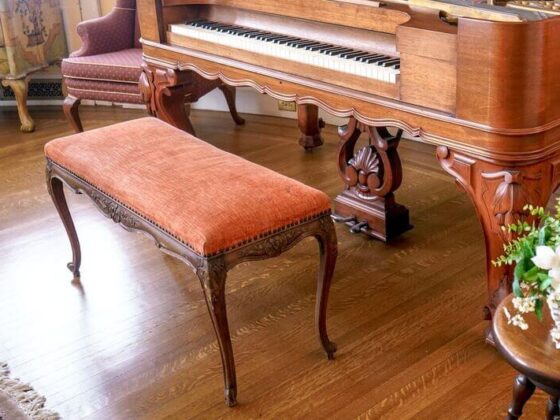
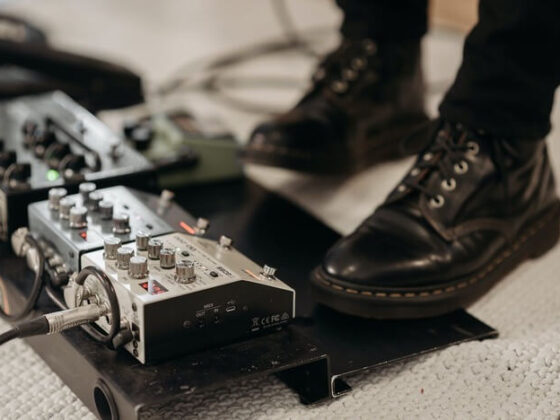
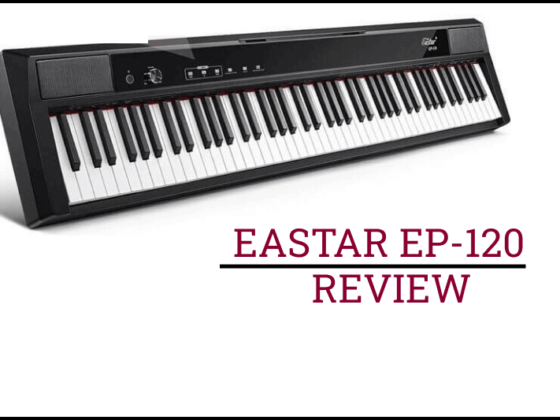

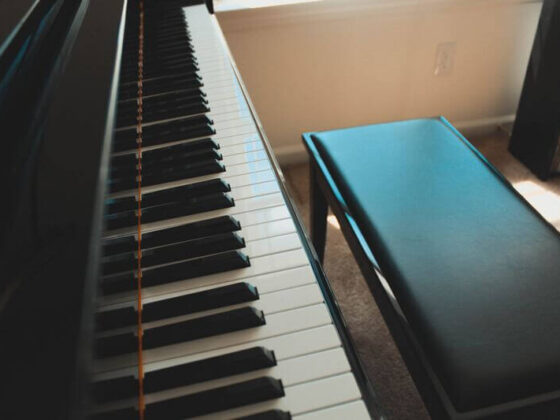
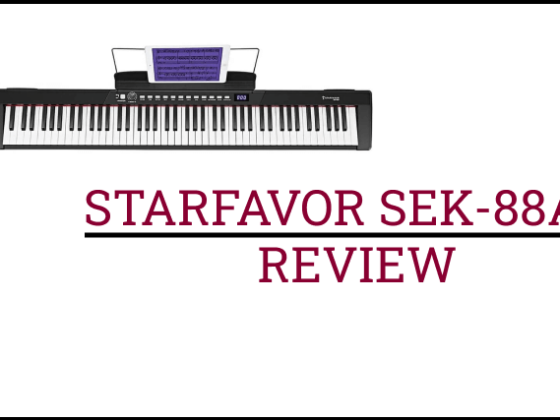
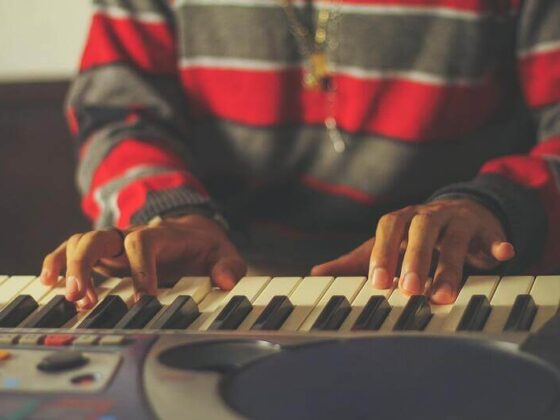
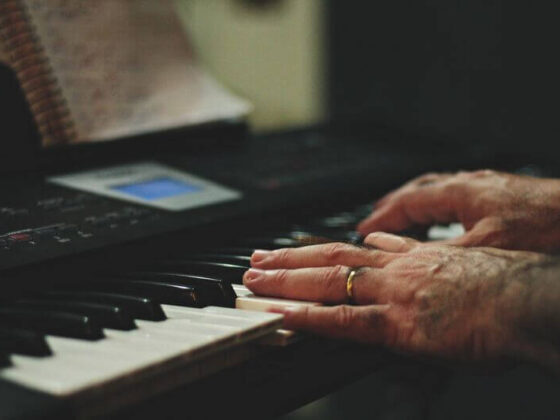
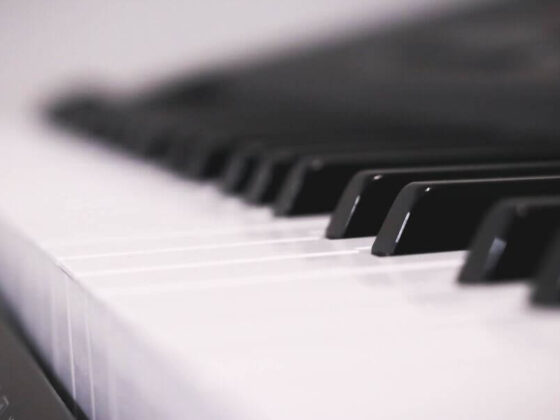
2 comments
Hello, what do you think about the
Yamaha Preaggio N-35 keyboard for a beginner? Thanks!
Hello! I’ve been wanting to review that keyboard 🙂 I think it’s a great choice for a beginner. It features semi-weighted keys and superb Yamaha quality. If you are trying to decide between a 61-key keyboard and Yamaha Preaggio N-35, I’d definitely go for the latter.